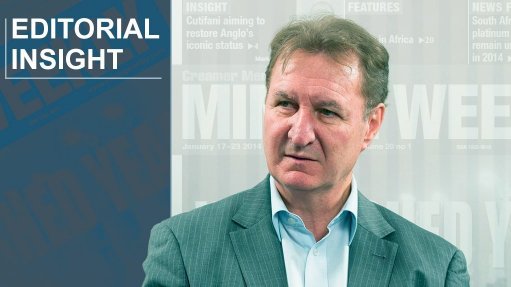
Societal demands for a decarbonised world are being aired with increasing regularity. They are being directed rather robustly at the world of fossil fuels, which is discovering that there is no way out but to respond to the need to transition and to do so in a just, orderly and economy sustaining way.
The world is being instructed in no uncertain terms to move away from burning coal to generate electricity, as South Africa still needs to do overwhelmingly for decades to come.
Against this background, political and business wisdom needs to prevail to place decreasing reliance on fossil fuels and increasing reliance on the sun, wind and the clean energy Mother Nature can provide.
This all has to be done to mitigate climate change, the planet’s most pressing problem.
Responsible coal companies are already responding well. Some have publicly committed themselves to capping fossil fuel production growth. Others are rebranding themselves as holistic energy concerns and entering the renewable-energy space while making sure that the needs of power utilities continue to be met for society’s benefit.
At the same time, the disruption has brought innovation to the fore. The reality for coal producers is hard. Major banks are refusing to finance coal projects and insurance companies are demanding higher premiums when coal producers renew their insurance agreements. But the astute see that climate risk poses both disruption and opportunity.
One company is intent on using acid mine water to source hydrogen competitively and gearing up to provide this as a power source. Technology has also come to the rescue to solve hydrogen’s transport problems so that the gas can conceivably replace oil while using all the infrastructure, transport tankers and storage tanks that oil has already laid on, but without impacting on the environment in the way that oil does.
Then there is South Africa itself, which is able to make a big contribution because of its superior sunshine, prime wind, available land and platinum abundance.
Mxolisi Mgojo, the CEO of JSE-listed coal mining and energy company Exxaro Resources,
told shareholders and analysts last week that the climate-change issue would be requiring “much more definite and structural changes in proactive response and actions”.
Acknowledging the risks and opportunities from climate change, he said the company – a 50% shareholder with Tata Power in renewable-energy company Cennergi – was witnessing an increase in enquiries from shareholders about its climate risk response.
A blow to the company is that it was meant to be building a coal mine in Limpopo for an independent power producer, but the prolonged official approval delay is now serving to highlight the quandary governments are in.
The need to avoid doing what would be out of step with environmental imperatives is acknowledged. But, at the same time, there are also immediate needs to keep energy flowing.
There has to be balance, with climate- change mitigation on the one side and immediate energy demands on the other.